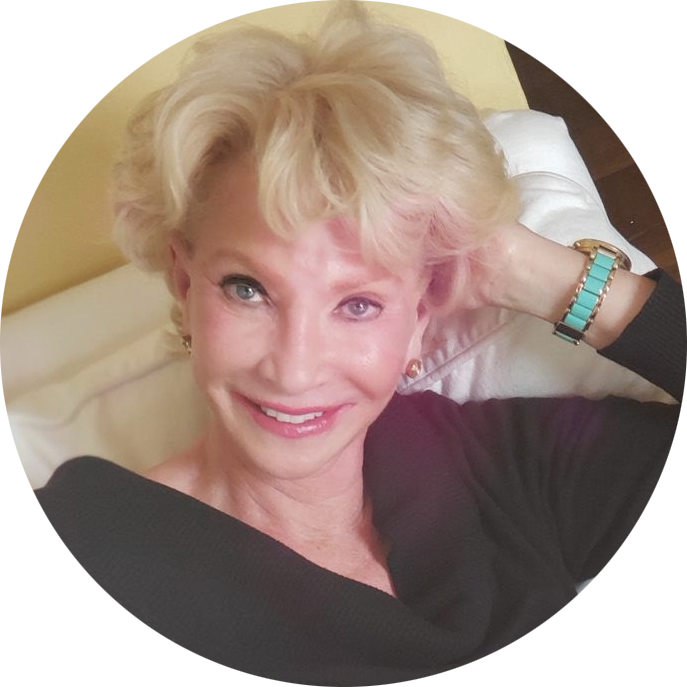Ask Beatty: Making Amends with People We Have Hurt

There is not a person alive who has not, at some point in their life, intentionally or unintentionally hurt another human being emotionally, physically, verbally, financially or sexually.
When I was growing up in Winnipeg, Canada, my parents and teachers were models of kindness, generosity of spirit and good manners.
“Please” and “thank you,” “can I help you,” “I’m so sorry,” were phrases that I routinely heard people say to one another. It was also the kinder, gentler Canadian society and culture that I lived in for most of my life that reinforced these values and behavior.
In my private practice in New York City and East Hampton, I routinely work with individuals, couples and families who are in crises.
Although their presenting problems vary from situation to situation, my patients’ lack of emotional communication and problem-solving skills are a common problem that they all share when beginning therapy with me.
The ability to have constructive conversations — not hurtful and out-of-control confrontations — is a must-have skill if we ever hope to have healthy and happy relationships.
Our willingness to admit that we were wrong — to apologize for hurting another human being — goes a long way in being able to repair relationships.
So are there people in your life who you have hurt or harmed with whom you would like to try and make amends? Perhaps it’s your children, family, significant other, co-worker or friend whom you have hurt?
What prevented you in the past from apologizing? Was it false pride, anger or the fear of not being forgiven that stopped you from doing the right thing?
Even though we can’t change what we did or didn’t do, I can assure you that the the emotional, psychological and even physical relief that people feel when they take responsibility for their own hurtful and harmful behavior cannot be underestimated.
In the criminal justice world, restorative justice refers to “an approach to justice that seeks to repair harm by providing an opportunity for those harmed and those who take responsibility for the harm to communicate about and address their needs in the aftermath of a crime.”
The purpose is to repair the harm and to try and rebuild the relationship. I believe that if this approach were taught in the schools, synagogues, churches and mosques, that people would become more conscious of how we treat each other and what to do when we go astray.
SO WHAT SHOULD YOU SAY WHEN MAKING AMENDS?
1. Start with a thoughtful apology: When you make amends, you must apologize for the hurt and pain you caused. It doesn’t have to be a lengthy apology, it just needs to be honest, sincere and thoughtful.
2. Take responsibility for your actions: Don’t deny responsibility for the harm you’ve caused, even if you think it was someone else’s fault.
3. Admit what you did wrong: One of the most important parts of making amends is being specific about what you did or didn’t do that caused the other person pain or harm. And don’t try to justify what happened. Simply admit that your actions were wrong without explaining why they occurred in the first place. No one is interested in hearing “I was too tired or too drunk to know what I was doing.” Step up and be willing to own your hurtful behavior.
4. Genuinely feel remorse: It is important to genuinely feel regret for the person you hurt and the pain you caused. You need to be able to convey genuine feelings of remorse if your apology has a chance to be accepted.
5. Ask for forgiveness: When asking for forgiveness, you must be sincere. This means that you are willing to accept any consequences for your actions, no matter how severe they many be. You also need to be ready to commit to changing your behavior in the future. It’s not what you say — it’s what you do that really demonstrates your seriousness and commitment to change your actions and behavior that caused another person pain and harm.
6. Ask what you can do to amend your wrongdoing: While it may seem like a simple question, the “What can I do now to repair the damage that I caused you?” is really a two-part question. First, you’re asking permission to make amends, and secondly you will find out whether the person is willing to accept your apology. They may not. And you will also discover if they do, what it is exactly that they need from you. There is always a chance that the person might tell you that even though they appreciate your apology that they either need to think about accepting it or on the other hand, that they still are not interested in having a relationship with you. However, the risk of reaching out and asking for forgiveness (whatever the result) should hopefully give you a sense of peace. You will be able to look at yourself in the mirror and know that you tried your very best to make amends.
7. Be patient and persistent: If you are looking to make amends with a loved one or family member, you need to take the time to develop a plan. You’ll want to be mindful of your intentions and follow-through. It’s important to remember that making amends is a process. You can’t expect everything to go perfectly when you try to do it for the first time. You may need to go back several times, with no guarantee that the person will accept your apology. And there are times when the damage is simply too great and that there is no going back despite your apologies.
LESSONS TO BE LEARNED WHEN MAKING AMENDS
Whether the person(s) you have hurt does or does not accept your apologies, there are hopefully lessons that you have learned along the way.
A helpful exercise might be to ask yourself what in fact, if anything, you have learned from the chaos that you caused. And even though we can’t change our histories, perhaps this crisis has taught you some invaluable lessons about yourself and your relationships with others that you may never have learned had this event not happened.
And hopefully, as you go through this process, you will be able to learn to forgive yourself.
Beatty Cohan, MSW, LCSW, AASECT is a nationally recognized psychotherapist, sex therapist, author of For Better for Worse Forever: Discover the Path to Lasting Love, national speaker, national radio and television expert guest and host of the weekly “Ask Beatty Show” on the Progressive Radio Network. She has a private practice in NYC and East Hampton.
Beatty would love to hear from you. You can send your questions and comments to her at BeattyCohan.msw@gmail.com. For more info, go to beattycohan.com.




